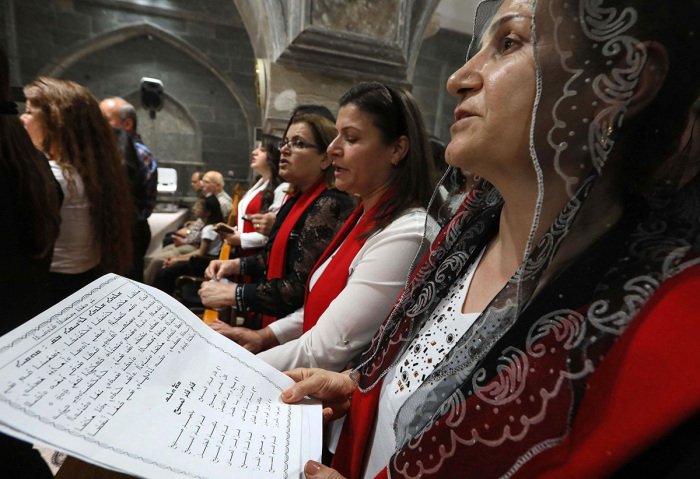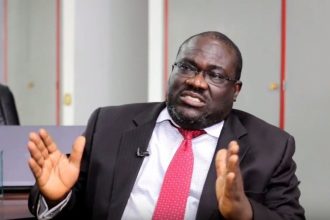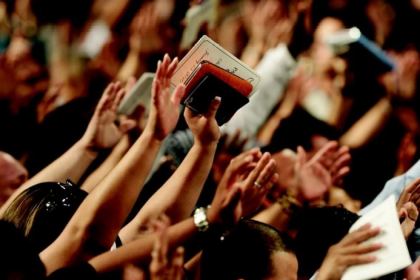
Despite the lingering scars left by the Islamic State’s capture of swaths of Iraq and Syria over a decade ago and the current pressure from Iranian-backed militias, over 1,000 Iraqi Christians, most of them young children, have reportedly received their first communion within the last few weeks.
The Chaldean Catholic diocese in Baghdad celebrated the first communion of 50 children in the Iraqi capital, while 32 others received the sacrament through the Syriac Catholic Diocese, the Catholic News Agency partner ACI MENA reported last week.
Among the churches where the children received their first communion was Our Lady of Salvation Parish in Baghdad, which became the site of a massacre in 2010 after Islamic militants attacked the cathedral during a Sunday mass. The militants slaughtered dozens of worshippers, in addition to killing two priests and injuring many others.
Nearly 15 years later, 11 children experienced the communion for the first time this year at the church, according to ACI MENA.
In Baghdeda, a town in the Nineveh Governorate, churches belonging to the Syriac Catholic Archdiocese of Mosul and its dependencies celebrated the first communion for over 460 children across three separate ceremonies.
The Archbishop Benedictos Younan Hanno of Mosul in the Ninevah Plains also presided over 30 children receiving the sacrament in the nearby towns of Bashiqa and Bartella.
Christians in neighboring towns displaced by the Islamic State (also known as ISIS, ISIL or IS) in 2014 returned to their homes in 2017 after parts of Iraq were liberated around three years after the radical group established a caliphate in the Ninevah Plains of Iraq.
Syriac and Chaldean Christians returned to find their homes and communities in a state of pure devastation. As the persecution watchdog Open Doors notes, the area northeast of Mosul is home to the majority of Iraq’s Christians and home to the ancient city of Nineveh, where God sent Jonah.
“Churches, monasteries and church facilities have become part of the fabric of these areas; some of these buildings date back to the fourth century,” Open Doors notes in a 2024 factsheet. “Most of the Christians in the Nineveh Plains speak different dialects of Aramaic, which is the language that Jesus spoke.”
Open Doors, an advocacy group monitoring Christian persecution throughout the world, ranks Iraq as the 17th worst country in the world when it comes to Christian persecution.
In 2014, before the rise of the Islamic State caliphate in the Nineveh Plains, the region’s population was estimated to be about 40% Christian. But the Islamic State drove religious minorities from their homes and area in the years that followed. But since the military defeat of the Islamic State in 2017, Iran-backed Popular Mobilization Forces, which helped defeat the group, took control over once predominantly Christian towns.
Since 2004, half of Iraq’s Christian population has fled the country. Although about 550,000 Christians still live in Iraq, Open Doors notes that they mostly live in the Kurdish-controlled autonomous region of Iraqi Kurdistan.
A 2022 report from the Philos Project states that Iran’s proxy militias have played a significant role in the dramatic decline of Christians in places like Iraq, Syria, Lebanon and Yemen by creating conditions “that forced the Christians out.”
Religious freedom advocates have warned about an Iranian-linked militia leader removing mayors and other officials from Iraq’s Christian towns, with former U.S. Commission on International Religious Freedom Chair Nadine Maenza saying that the leader sought to install leaders who agree with Iran’s vision for Iraq.
“He took over the Ninevah Council,” Maenza told Voice of America last September. “He got his own people elected, and then he started buying them off. He removed 15 mayors and directors. He replaced all with his own people. So, he basically took over the Ninevah Plains. There are no more Christian (political) leaders outside of the KRG (Kurdistan Regional Government) control.”
The Washington Institute for Near East Policy reported in March 2023 that protests broke out in the Hamdaniya district of the Nineveh Plains as Christians resisted an attempted takeover by the Kataib Babiliyoun, the 50th Brigade of the Popular Mobilization Forces.
Despite attempts from KB unit commanders to present the militia as Christian, the think tank reports that Shia Muslims made up most of its manpower. The KB’s political branch, the Babylon Movement, took control of five seats reserved for Christians in 2021 by using money from Iran to double its national parliamentary representation, according to The Washington Institute.
The clash on March 11, 2023, began after KB commander Osama al-Kildani attempted to take control of the Emergency Response Unit of the Nineveh Plains Protection Units. Public anger toward the militia had already been brewing, according to The Washington Institute, with the replacement of local officials with KB loyalists among the complaints.
The antipathy goes back to 2017, around the time Iraqi forces liberated the area from IS, as KB personnel reportedly looted Christian artifacts from the Mar Behnam Monastery. Other issues that the locals had with the KB militia include unfairly shaking them down at checkpoints and harassing women, according to The Washington Institute.
With backing from multiple Christian leaders in the Nineveh Plains, the citizens marched from the Bishopric of the Syriac Catholic Church and forced the KB convoy out of town in March 2023.
“Bolstered by strong solidarity among the Christian community and the leading bishops of the Nineveh Plains, the NPU submitted a petition on March 13 to be removed from the KB brigade’s order of battle and restored to its prior status: as a Tribal Mobilization Force under the Nineveh Operations Command,” The Washington Institute reported in 2023.
“Yet during the March 14 separation negotiations at the PMF provincial office in Mosul, seven members of the NPU delegation were seized under charges of insulting the PMF and sent to Baghdad. Although they were released two days later, this is unlikely to be the last retaliatory action by Kataib Babiliyoun.”
Samantha Kamman is a reporter for The Christian Post. She can be reached at: samantha.kamman@christianpost.com. Follow her on Twitter: @Samantha_Kamman




